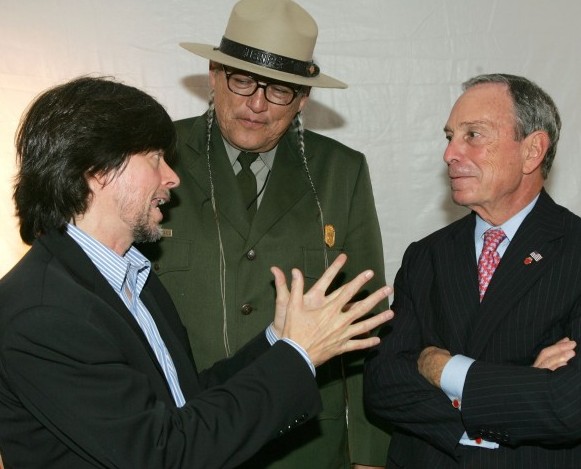When people think of National Parks they often think in terms of natural history, but there is a rich cultural history waiting to be told as well. People have no doubt heard of park rangers, but few have heard of Buffalo Soldiers.
Park rangers serve to patrol and protect parks, but before the National Park system was formally established in 1916, and before the term park ranger was even coined, African-American Army regiments called Buffalo Soldiers served as park protectors in federally protected lands like Glacier National Park and Kings Canyon in the West.
As early as 1866, Buffalo Soldiers policed the land, maintained trails, roads, and did minor construction, according to Alan Spears, legislative representative for the National Parks Conservation Association. The legacy of Buffalo Soldiers’ service to National Parks is not as broadly known or understood as it should be, he said.
Buffalo Soldiers played an important role in the expansion of the Western frontier, as the regiments also spent their time scouting and patrolling vast expanses of challenging terrain, firefighting, providing sentinels and security for the settlers, and installing telegraph lines, according to the National Park Service (NPS) website.
Buffalo Soldiers were involved in many parks in the West, including Alaska and Hawaii according to Spears.
In 1866, after the Civil War, legislation was passed to create a peacetime army and all African-Americans regiments were created for the first time. It is generally understood that these regiments were named Buffalo Soldiers by Native Americans living in areas of the West, who thought their hair resembled that of a buffalo. The term Buffalo Soldiers was used until the end of segregation in the U.S. Army in the 1940s.
Being assigned to a cavalry of one of the first African-American Army regiments was the realization of a personal dream for Lt. Henry O. Flipper, who was born into slavery in the 1850s, according the NPS. He was the first African-American graduate of West Point Military Academy.
Another soldier, Charles Young was also one of the first African-Americans to graduate from West Point and be commissioned as an Army officer. During his 37-year military career, he led an escort of troops for President Roosevelt and served as acting superintendent of Sequoia National Park, where he and his troops extended wagon roads to the Giant Forests, the home of the world’s largest trees. The park had been open for 13 years at that point, but due to a lack of congressional funding the park was still underdeveloped and hard to visit. In the summer of 1903, Young and his troops built as much road as the combined results of the three previous summers, according to NPS. His roads are still in use today and have served millions of visitors.
“It’s a really compelling story,” Spears said, of formerly enslaved African-Americans transforming themselves from slaves to soldiers to citizens.
Many of these soldiers were recognized for their valor, and several were awarded
the Medal of Honor.
Spears views these stories as a good opportunity for the National Parks Service to reach out to people, especially the African-American community.



